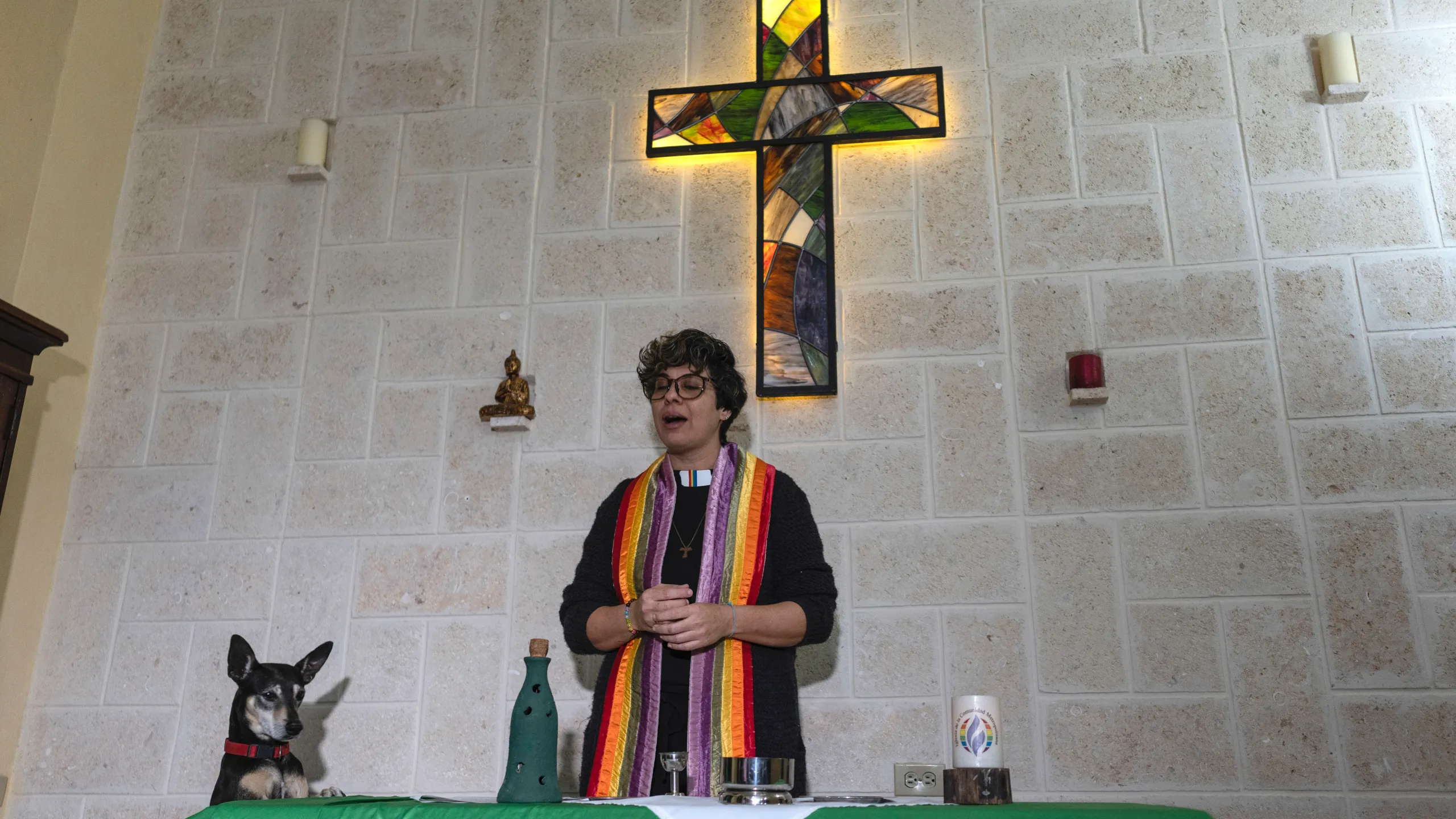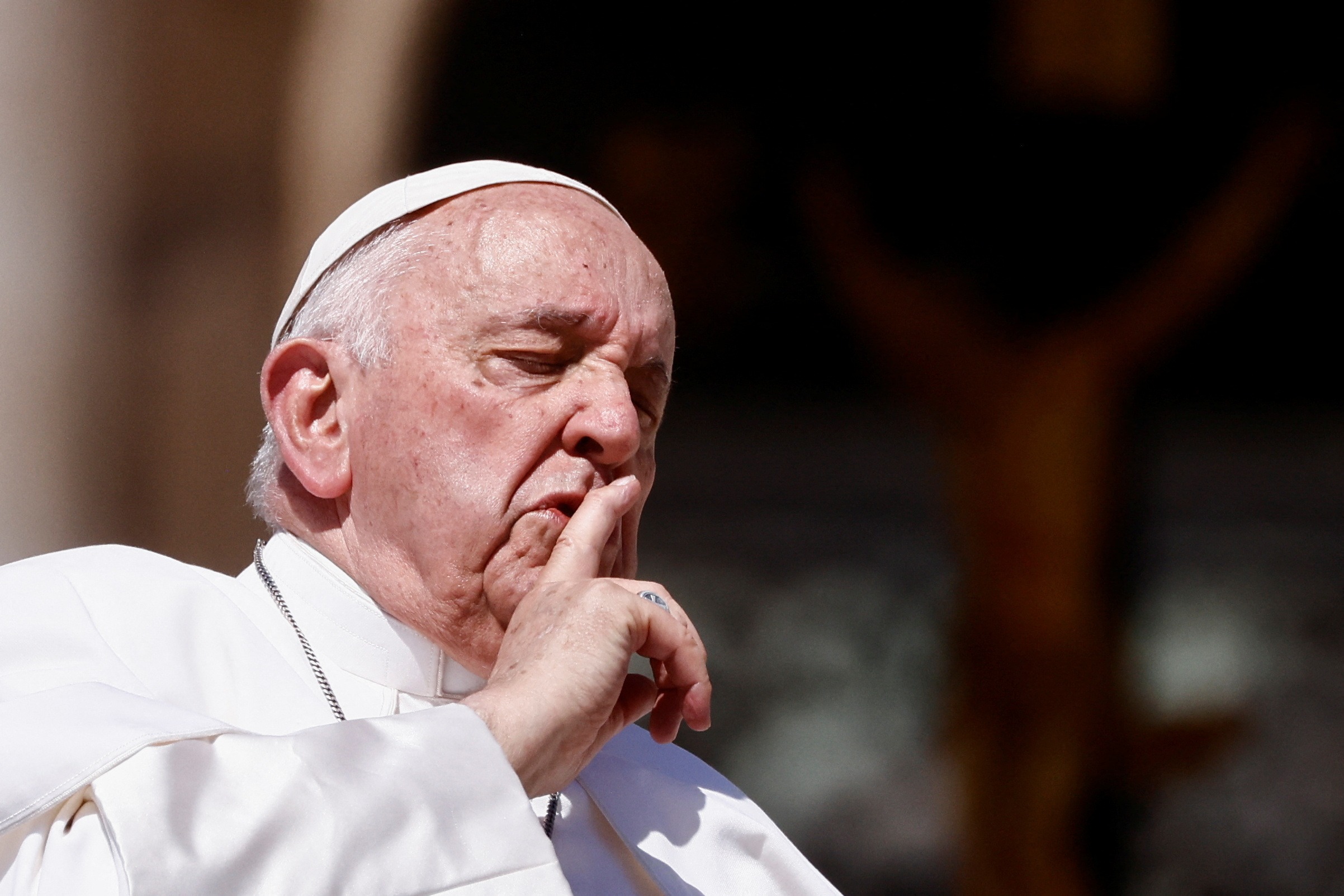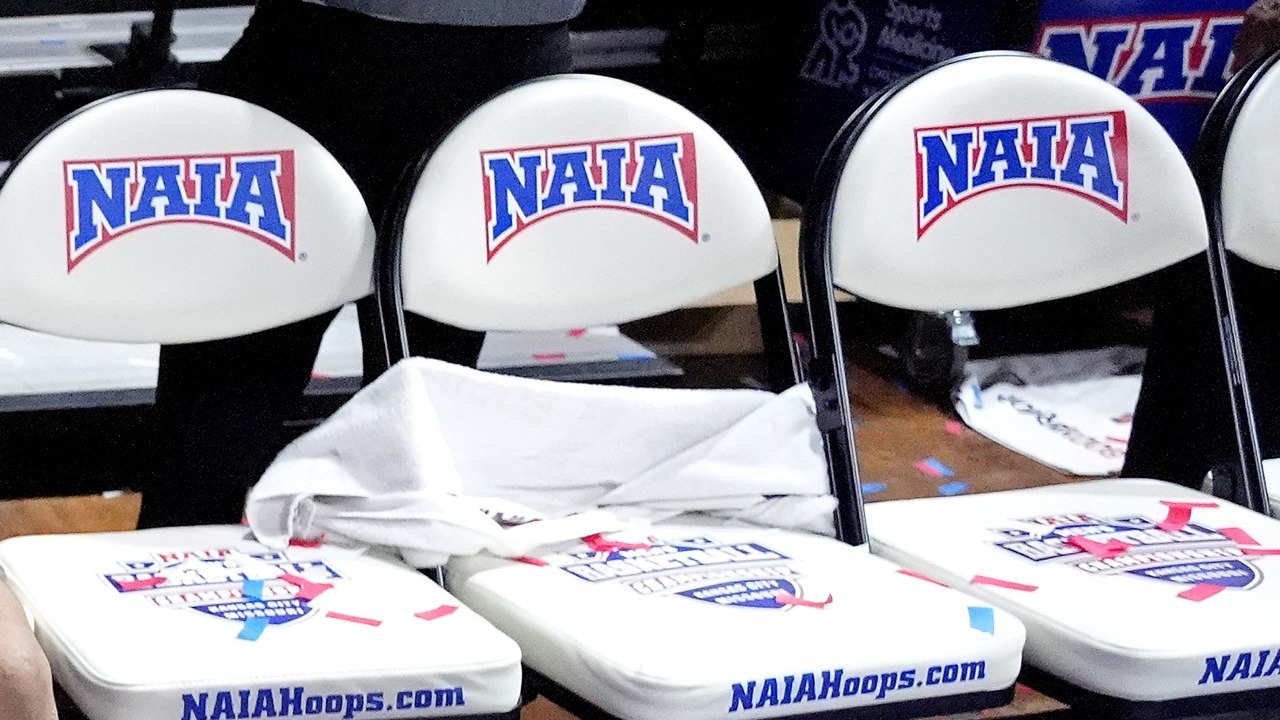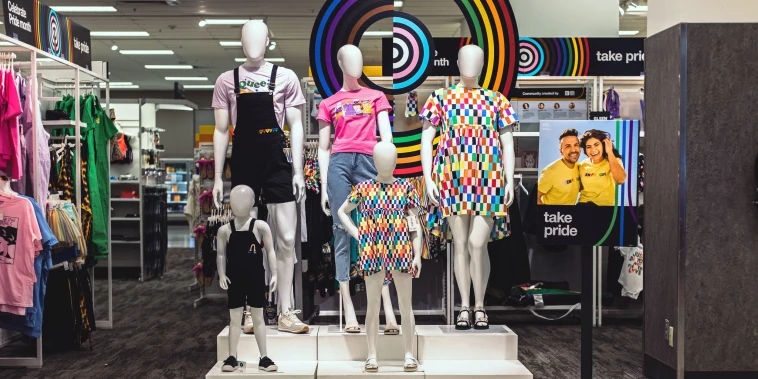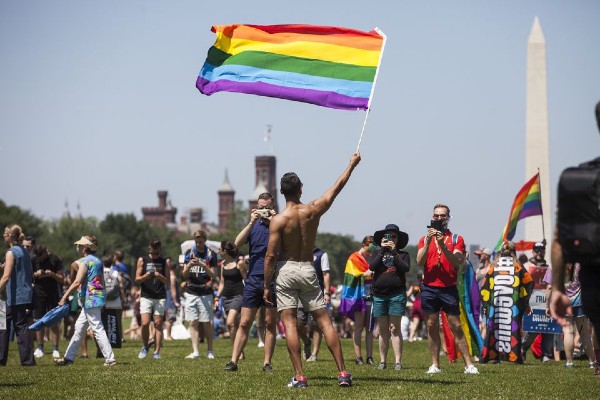On a national stage, 10 Democratic presidential candidates answered questions exclusively about queer issues. In an ideal world, debate moderators would realize that roughly 10 million Americans identify as LGBTQ—and they would ask candidates important questions about issues like the transgender military ban or the Equality Act in front of a national audience. But instead, we have an imperfect world […]
On a national stage, 10 Democratic presidential candidates answered questions exclusively about queer issues.
In an ideal world, debate moderators would realize that roughly 10 million Americans identify as LGBTQ—and they would ask candidates important questions about issues like the transgender military ban or the Equality Act in front of a national audience. But instead, we have an imperfect world where moderators routinely fail to ask basic questions about LGBTQ topics whenever potential future presidents are on stage. Even in debates that are longer than The Lord of the Rings movies, LGBTQ issues go unaddressed. Sometimes it feels like we don’t even exist!
GLAAD President Sarah Kate Ellis took the media to task for those omissions in her opening remarks at Friday night’s historic LGBTQ Presidential Forum in Cedar Rapids, Iowa: “To date,” Ellis observed, “the 2020 Democratic debates have virtually left LGBTQ people and our issues out of the conversation. But that all changes tonight.”
But like any big change, this one won’t happen overnight. The forum, hosted by Pose actress and transgender activist Angelica Ross, was indeed a breath of fresh air, given our past erasure. For two hours, LGBTQ issues were front and center—and 10 Democratic presidential addressed them. No doubt this was a historic affair full of firsts. The candidates talked about LGBTQ topics ranging from discrimination in the foster care system to non-binary identity documentation to the FDA’s ban on blood donations from gay and bisexual men—all of which would be mere footnotes in other presidential debates, if they were brought up at all.
But viewers who tuned in expecting a format in which the candidates could challenge each other and engage in cross-talk instead saw a series of opening statements and brief one-on-one conversations. Most sit-downs were too short to cover more than a couple of questions apiece. Some early format confusion after former Vice President Joe Biden took the stage added another bump to the proceedings.
The forum was sponsored by GLAAD, The Advocate, One Iowa, and local newspaper The Gazette. The moderators—The Advocate editor in chief Zach Stafford, One Iowa’s Keenan Crow, and Gazette columnist Lyz Lenz—took turns pairing off with the 10 candidates for brief sit-downs. Questions about the candidates’ records on LGBTQ issues were often pointed—Senator Kamala Harris, for example, was asked about past legal briefs she filed in opposition to gender-affirming surgery for a transgender inmate—but because time was so limited, candidates like Harris could easily dodge them and deflect attention elsewhere.
The missteps were, in part, a sign of the enormous amount of pressure on an event like this: When you only have two hours for 10 candidates to address issues that almost never receive airtime anywhere else, no outcome will feel sufficient. (“We can’t answer every question,” Stafford acknowledged at the end of the proceedings.) There will be another LGBTQ-focused event for the Democratic candidates next month—organized by HRC and airing on CNN—that could build on this event, though one might reasonably fear that moderators from a mainstream cable news network might not delve as deep as LGBTQ viewers might like into topics like sex work.
Here were the biggest takeaways and key moments from the first LGBTQ-focused event of the 2020 cycle:
1. Where were Bernie and Beto?
“Why ain’t you here?” That’s the question Ross urged the audience to ask candidates who weren’t in attendance Friday night. Senator Bernie Sanders, as Ross noted on Twitter earlier this week, had prior commitments visiting historically black colleges and universities. Ross and GLAAD were urging Beto O’Rourke to attend this month, but he was also missing from the stage, as was Andrew Yang. (It should be noted that both Sanders and O’Rourke have released details of their LGBTQ policies on their respective websites—and that Yang has released a brief but supportive statement on his own.) O’Rourke will attend CNN’s LGBTQ-focused town hall in October—but neither Sanders nor Yang will attend that event due to “scheduling conflicts,” as CNN reported.
2. Marianne Williamson failed to clarify her past comments on HIV/AIDS.
Stafford put author and self-help guru Marianne Williamson on the defensive early on, asking her to address past comments and writings that—in Stafford’s words—could be interpreted to suggest “that positive thinking can help someone with an HIV diagnosis.” Williamson failed to provide meaningful clarity, insisting again that her words have been taken out of context—and that she was the subject of “vicious smears.” At a time when there are alarming rates of new HIV infections—especially among gay and bisexual men of color living in the South—Williamson needs to demonstrate a firm handle on the science of HIV/AIDS medicine and prevention, and to grapple more soberly with her prior remarks. She did neither Friday night.
3. Joe Biden’s whole appearance was…yikes.
Granted, Biden’s portion of the evening got off to a rocky start when a seeming miscommunication between moderator Lyz Lenz and the former vice president led Biden to skip much of his planned opening statement. But the conversation only grew even more awkward from there: When Lenz pressed Joe Biden on his support of a controversial 1994 crime law and its impact on incarceration, Biden grew frustrated, saying at one point to Lenz—sarcastically—“You’re a lovely person.” (“Just asking the questions the people want to know!” Lenz replied.)
Biden never regained his footing. Upon exiting the stage, Lenz tweeted that Biden said to her, “You’re a real sweetheart.”
4. Cory Booker, Pete Buttigieg, Elizabeth Warren, and Julián Castro were predictably impressive.
Senator Cory Booker talked passionately about the importance of PrEP, science-based sex education, and criminal justice reform. Mayor Pete Buttigieg shared a moving anecdote about realizing that—as a gay man and mayor of South Bend, Indiana—he couldn’t participate in his own annual blood drive, although he stopped short of promising to end the FDA’s ban on blood donations from men who have sex with men.
Senator Elizabeth Warren opened her remarks by reading the names of the transgender people who have been lost this year, announcing, movingly, “It is time for a president of the United States to say their names.” Warren went on to quote scripture in one of the more transfixing moments of the evening. And although Julián Castro might not be quite as powerful as an orator as these other three candidates, he spoke from a place of deep knowledge about important LGBTQ issues like asylum-seeking and homelessness. It’s clear that, for perhaps the first time in history, we have Democratic presidential candidates who have read up on the ins and outs of LGBTQ issues, and are eager to prove that they would best serve the community.
5. Other candidates were…less impressive.
Pressed on her own anti-LGBTQ history—for which she has previously apologized—Representative Tulsi Gabbard said, “My record speaks for itself,” which felt like an unwise line to say at an event that would be her first introduction to many LGBTQ voters. Senator Amy Klobuchar, similarly, did not wow on Friday night, talking at length about gun laws without clearly spelling out the ways in which gun violence is an LGBTQ issue. Senator Kamala Harris fared better than both Gabbard and Klobuchar, but her dodge of the question about surgery for transgender inmates was the most overt in a night full of deflections.
6. What was Karamo Brown doing there?
After the Queer Eye star landed himself in hot water for calling Dancing With the Stars castmate Sean Spicer—the former mouthpiece for a virulently anti-LGBTQ White House—a “good guy,” it was hard not to read Karamo Brown’s mid-evening appearance as anything other than some clever damage control. When Brown came on stage it wasn’t immediately clear whether he would be introducing a candidate, interviewing a candidate, or—what, exactly? By the time he said, “It’s not just Donald Trump who is the problem, it’s also all of the people who are surrounding him,” it was clear what Brown’s appearance was about. You can watch Karamo Brown dance on the same reality show as someone who used to “surround” Donald Trump Mondays on ABC!
7. Will someone please ask about FOSTA-SESTA next time?
The Victims to Fight Online Sex Trafficking Act (FOSTA) and the Stop Enabling Sex Traffickers Act (SESTA) are subject to intense critique among LGBTQ activists, given the ways in which that legislation has been used to target consensual sex work. Because LGBTQ people, especially transgender people, disproportionately rely on sex work to earn income—and often to survive—FOSTA-SESTA should be an essential topic to discuss with presidential candidates at an LGBTQ-focused forum. Sadly, its only mention tonight was when a protestor interrupted Senator Klobuchar to shout, “END FOSTA/SESTA” and “protect trans sex workers.” The yell, heard faintly over the live stream, was a reminder that certain LGBTQ issues will still go unaddressed, even at the events that are ostensibly intended to address them.
.
.
Check out the original story here: NewNowNext.
.
.
Have you found the right one, or are you still searching?

Join a gay dating site where you can meet single guys from any town or city. Rely instead on Gay Dating Solutions to do the work for you! Don’t get fooled by free offers made by other sites. Gay Dating Solutions is offering a FREE 6 month promotion ABSOLUTELY no strings, request for credit card numbers, etc…it is the only site that is truly free to join!
Sign-up now: www.gaydatingsolutions.com
Download our mobile apps: https://appurl.io/jd0jaqp0
Like us on Facebook: www.facebook.com/GayDating101
Tweet us: twitter.com/GayDating101
